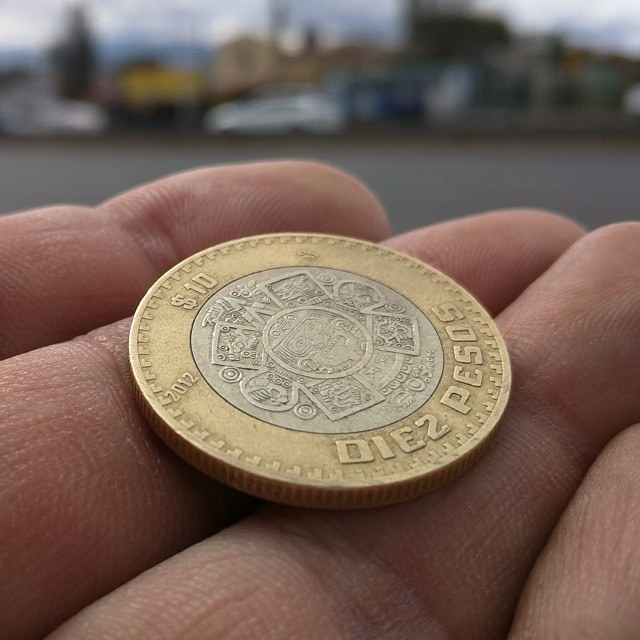I could feel my face become flush as the cashier rang up my items at the grocery store.
I knew I would be cutting it close, but I thought I should have enough money to buy the groceries for the week. I was only given a 20 dollar bill for the weeks groceries, but I always bought things that were on sale.
As the cashier continued ringing up my items, I prayed that I would have enough—if not what could I ask her to remove?
My forehead began to perspire as I saw the total reaching the 20 dollar mark, and then I heard her say, “That will be $23.72—paper or plastic?”
I froze at that moment, as I could feel the pressure of the people waiting in line behind me. I felt like I had no voice. I juggled my young son to my other hip as I took out the 20 dollar bill and rummaged through my purse looking for change that I knew was not there.
I finally looked up, with tears in my eyes, and asked her if she could take a few items off.
She stared at me for a moment, and just then a woman behind me handed me a five dollar bill and said, “Here you are hon, you keep it all.”
I turned and looked at her and began to tell her that it is okay, when she said, “No hon, you have your hands full. I’m happy to help, here, take it.”
I thanked her for her kindness. She didn’t make me feel embarrassed or ashamed, but she saw I had a need and stepped in to help.
That incident was 30 years ago, before the “Pay it Forward” movement. Memories are a funny thing—how they can stay hidden for years, until something brings a memory to the forefront of our mind.
Today I live in Baja. When I shop in the marketplace I am often the only “gringo” at the store. I speak to the local people in my broken Spanish as much as I can, and when I don’t know a word, I find a smile is a universal language.
This time, I bring my few items to the line where one of the two checkers is working. I am wedged between a young mother, with an active toddler, and a long line behind me of tired workers. Today is a typical humid day in Baja where you perspire just by standing still.
The little boy in front of me smiles and waves, and I return the gesture. His mother is young, and I can see she has her hands full with the active boy. I look down at her purchases—a bottle of cooking oil, rice, beans and a clown sucker.
I smile as I remember the days when my children were small, and it was always a good week if I could buy them a small treat on our limited budget.
As the cashier exchanged greetings with the young mother in front of me, I could see her open her wallet and look at her pesos. I watched her as her smile seemed to disappear, and she realized she may not have enough money. With each swipe the cashier made, I saw the woman begin to open up other compartments of her wallet.
When the total was announced, the woman handed her what she had, and she was just about to take the clown sucker away from her son (which the cashier had already handed him) when I reached over and handed the cashier 50 pesos.
They both just looked at me not knowing what to do. “Por mi amiga,” I said hesitantly.
I smiled at the young mother, put my hand on her shoulder and said again, “Mi amiga.”
The young woman’s eyes filled with tears, as she handed back the clown sucker back to her little boy, and she said over and over, “Gracias, gracias!”
It may have taken me 30 years (and to a different country) but that day I did my own “pay it forward”—much like that which was given to me 30 years previously.
I learned something that day, as I drove home and pictured the little boy with his clown sucker. 50 pesos was nothing to me—less than $3.00 U.S. currency—but it meant the world to that woman.
I know that one act of kindness will be something she will always remember, and I do believe that she will pay it forward sometime when she is able to.
.
Relephant:
I Secretly Left $20 Bills for Perfect Strangers.
Pay it Forward.
.
Author: Tammy L. Coia
Editor: Yoli Ramazzina
Photo: Flickr/Jorge Otaqui












Read 3 comments and reply